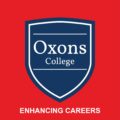Courses for IT Professionals
With exact and professional English, uplift your potentials in your IT skills to next level! You could be a six digits earner!
Oxons College has set out to establish itself as one of the leading organisations in the country administering English programmes for different ages, walks, occupations and professions. The college has developed extensive and intensive resources, curriculums and syllabuses tailor-made course designs to administer in classroom settings. The lessons are not limited to the 4 walls of the classroom. Every course is coordinated with the relevant setting and expertise. For instance, the learners of English for IT Professional will have part of their learning experiences in the IT lab. Likewise, in a football club or playground for the learners of English for Sports Personnel. We’ve achieved this thanks to our experience and knowledge of the sector, and through working with some of the leading experts in the field. Researches of world-leading scholars in the field of ESP (English for Special Purpose) have been thoroughly studied and have been utilised in connection with the field experience of the subject field. 
Course for IT Professionals and Developing
Oxons College proudly presents a hands-on, career-driven programme designed to prepare aspiring IT professionals for instant entry into today’s competitive tech industry. This comprehensive course offers practical training in core IT competencies—ranging from systems administration and cybersecurity to software development and network infrastructure—paired with essential English-speaking modules tailored to workplace communication.
With a curriculum focused on real-world problem-solving, project-based learning, and employability, students will leave not only technically proficient, but also equipped to confidently present ideas, collaborate with international teams, and perform effectively in interviews and client-facing roles.
Whether you’re starting out or upgrading your expertise, this programme gives you the skills, language, and mindset to succeed—quickly and globally.
What Will You Learn?
This course at Oxons College offers a powerful blend of core IT training with focused English-speaking support to fast-track students into employment. Participants will gain practical expertise in computer hardware, networking, cybersecurity, software development, and web technologies, all tailored to the demands of real-world tech environments. Alongside these technical modules, students will build confidence in English communication specifically for the IT workplace—learning how to present ideas, navigate team interactions, write professional documentation, and handle interviews effectively. With added career support like mock interviews, CV guidance, and mentorship, the course ensures learners not only master essential IT skills but also develop the language and professionalism needed to thrive in global tech roles.
Who this course is for?
This course is designed for individuals looking to build a solid foundation in IT while gaining the communication skills needed to succeed in English-speaking tech environments. It’s ideal for beginners who want to enter the tech industry quickly, international learners seeking employment in English-speaking workplaces, and professionals who may already have technical knowledge but need to sharpen their spoken and professional English for interviews, collaboration, and client interactions. Whether you’re a recent graduate, someone changing careers, or an aspiring IT specialist looking to enhance your employability, this programme provides the practical skills and language confidence to thrive in today’s fast-paced digital world.
What Does This Course Cover?
This course at Oxons College covers a wide spectrum of essential skills designed to prepare students for immediate employment in the IT sector. The curriculum includes hands-on training in key technical areas such as computer hardware, operating systems, network setup and security, introductory programming, web development, and IT support. Alongside these modules, students receive tailored instruction in professional English communication to enhance clarity and confidence in interviews, team discussions, technical writing, and client interactions. The programme also features employability-focused components including CV writing, mock interviews, and mentorship to help learners transition smoothly into the workplace. It’s a well-rounded pathway into the tech world—equipping you not just to work, but to thrive.
Course Features
Interactive Exercises: Coding tasks, debugging exercises, and technical writing assignments tailored for IT professionals.
Interactive Exercises: Listening, speaking, reading, and writing activities tailored for IT professionals
Real-World Case Studies: Practical examples like “software development lifecycle (SDLC) scenarios,” “cybersecurity incidents,” and “network setup challenges.”
Industry Expert Sessions: Guest lectures on topics like “machine learning,” “cloud computing,” “DevOps practices.”
Lab Sessions: Hands-on practice with real-world coding and IT projects.
Discussion Forums: Peer-to-peer learning and knowledge sharing on platforms like “Slack,” “MS Teams,” “Discord.”
Course Content
Module 1: Computer Hardware & Systems Fundamentals
– Understanding PC components and functions
– Installation and configuration of operating systems (Windows/Linux)
– Troubleshooting hardware issues
– System performance optimization
– Practical labs with real equipment
Module 2: Networking Essentials
– Network types and topologies
– IP addressing and subnetting
– Setting up LANs/WANs
– Introduction to routers, switches, and firewalls
– Network diagnostics and basic security
– Hands-on practice with network simulations
Module 3: Cybersecurity Basics
– Understanding cyber threats and vulnerabilities
– Password policies, encryption, and secure access
– Antivirus and firewall configuration
– Safe internet practices and ethical responsibilities
– Introduction to GDPR and data protection regulations
Module 4: Software Development Foundations
– Basics of programming: syntax, logic, and structure
– Introduction to Python or Java
– Writing and debugging simple scripts and programs
– Understanding APIs and software environments
– Collaborative coding exercises
Module 5: Web Design & Development
– HTML, CSS, and introductory JavaScript
– Building responsive websites using frameworks (e.g., Bootstrap)
– Website hosting and domain basics
– User interface (UI) and user experience (UX) principles
– Mini project: creating your own portfolio site
Module 6: IT Support & Helpdesk Operations
– Ticketing systems and client communication
– Diagnosing user problems remotely
– Writing technical support documentation
– Customer service techniques for technical teams
– Simulated helpdesk scenarios
Module 7: English for IT Communication
– Vocabulary for IT professionals (tools, systems, scenarios)
– Speaking skills: interviews, meetings, and presentations
– Listening comprehension: technical briefings and instructions
– Reading and writing: emails, reports, job applications
– Role-play and peer feedback to build fluency
Module 8: Career Preparation & Employment Support
– CV and LinkedIn profile building
– Personal branding for tech professionals
– Interview preparation: mock interviews with feedback
– Workplace etiquette and professional communication
– Networking, job portals, and career pathways
Capstone Project: Real-World Integration
– Develop a complete IT solution (e.g., website + security + documentation)
– Present project to peers and industry panel
– Receive personalized feedback and certification preparation
– Apply learned skills to practical job scenarios
English for software engineers, developers, & programmers
IT professionals need strong English skills to collaborate effectively. Explore top English terms for developers, programmers, and software engineers in this essential guide.
According to the 2021 State of the Developer Nation report, there were 24.3 million software developers in the world that year—a 20% increase from 2020. At that rate, it’s currently estimated that there will be 45 million software developers by 2030.
So whether you’re an aspiring programmer or a seasoned software engineer, it’s clear that competition in the tech world will only get progressively stiffer. However, one way to get a leg up on your competitors is to learn English for developers and other IT careers.
To help you on this journey, we’ve mapped out a list of the most essential English Vocabulary for all IT specialists, as well as critical terms in software developer English, programmer English, and software engineering English.
We’ll also discuss the importance of English for IT professionals, explain the best approach to learning technical English for programmers and other IT careers, and point you toward useful Oxons College designed for your IT profession.
Enrollment and Contact Information
- To enroll, visit our website or contact our admissions office for more details.
- For further information, please email info.oxonscollege@gmail.com or this number- 07368547983
Tutorial Support
Besides regular lesson times, off-lesson-hour supports are also available at
an agreed-upon time.
